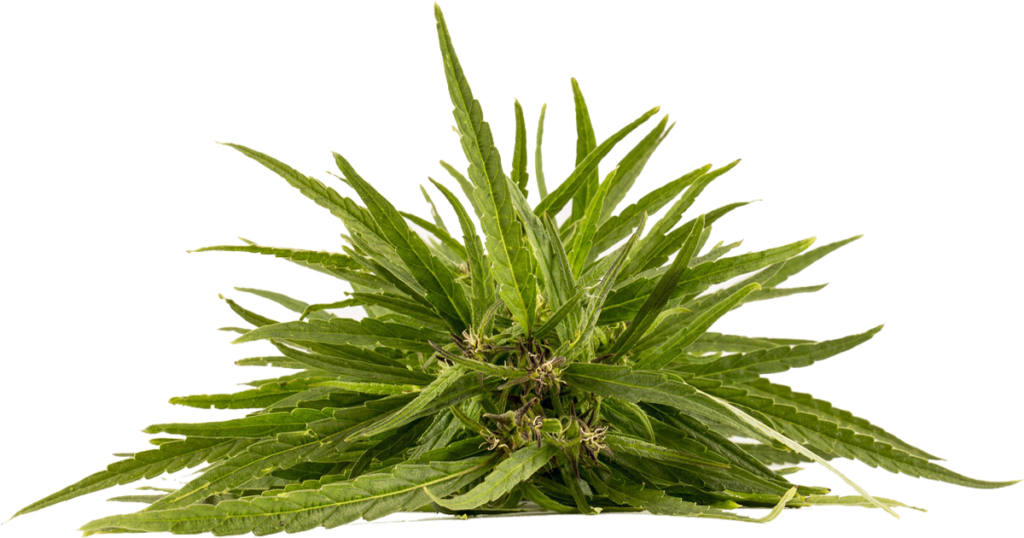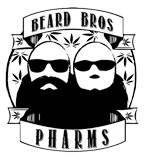
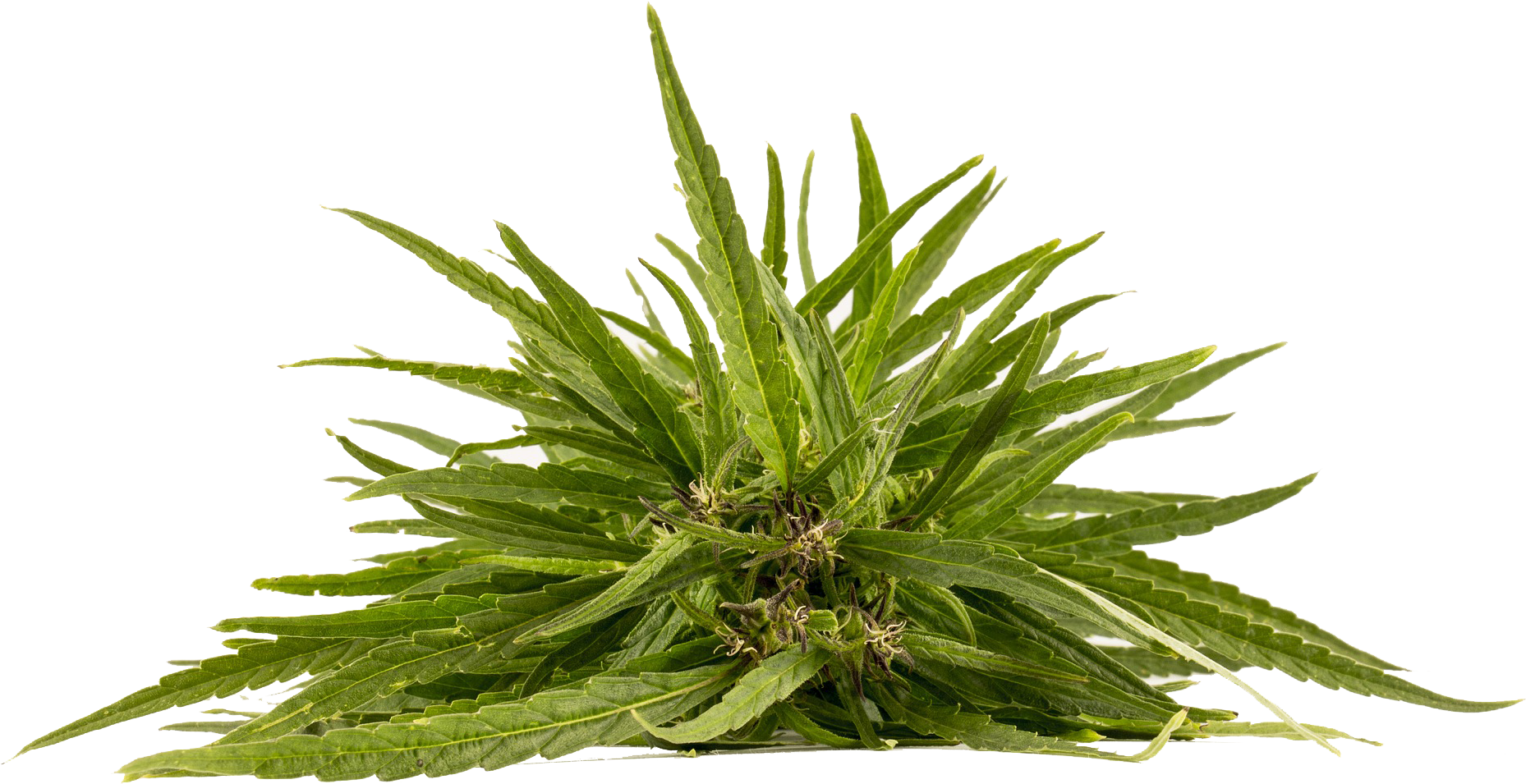
Last week the South Hall of the Las Vegas Convention Center hosted the winter version of the CHAMPS Trade Show, a counterculture business-to-business expo where manufacturers, distributors, and headshop and smokeshop buyers all converge for three days of high rolling product sales and awareness. In a space the size of 4.5 football fields, CHAMPS held its largest event dating back to its inception in 1999 spanning two decades and 55 shows from coast to coast. This was their 40th show in Vegas and it has been interesting to watch the waves of new trends come to CHAMPS, which companies survive when each wave inevitably crashes, and which new trend rises to replace it. This year, without a doubt, the new wave at CHAMPS was CBD.
When President Trump signed the 2018 Farm Bill into law last December, the hemp plant was effectively removed from the feds’ list of banned substances. By definition, hemp was categorized as any cannabis plant that contains less than 0.3% THC, with no stated limits on CBD saturation.
To many, this meant that CBD was now totally unregulated by the federal government and visions of interstate or even global commerce danced in the heads of entrepreneurs nationwide. But the FDA quickly buzzkilled the popular cannabinoid that will not even give you a buzz with an immediate follow up to the passage of the Farm Bill clarifying their established position that infusing any form of CBD into food, drinks, or cosmetic products was still illegal under federal law.
When pressured by Democratic lawmakers at a hearing on Capitol Hill last Wednesday, U.S. Food and Drug Administration Commissioner Scott Gottlieb told the Congressional panel that the FDA will be holding public hearings in April of this year regarding the regulation of hemp-derived CBD.
Commissioner Gottlieb acknowledged that he and his colleagues recognize that the intent of the hemp-liberating language in the Farm Bill was to essentially legalize CBD, but he said that the FDA had not reached that conclusion yet themselves.
In fact, according to the Commish, next month’s hearings could very well result in all forms of CBD being RE-scheduled back onto the Controlled Substances Act.
“I think we’re going to have a resolution on that very soon about whether or not the CBD derived from hemp doesn’t fall under the scheduling process,” Gottlieb told lawmakers last week.
For now, it remains in limbo.
But limbo is where the counterculture thrives and CHAMPS is no stranger to it either. Through the earliest years of the show’s existence, the feds were cracking down hard on the manufacture and sale of “drug paraphernalia” which could (unfairly) describe the vast majority of their vendors then and now, but it persevered.
SURF’S UP
Despite the fact that the FDA is warning manufacturers and retailers of the grey area surrounding CBD, products touting the multiuse cannabinoid can be found everywhere from headshops, to farmers markets, to Amazon.com and the trend did not go unnoticed by the showrunners at CHAMPS.
Last week’s event was said to be the largest showcase of CBD products ever displayed at one trade show and it certainly was eye-opening.
To secure the space at CHAMPS, build a booth, staff it for the better part of a week, etc. is a 4-6 figure commitment for a brand and yet booth after booth pitched some version of hemp-derived CBD since actual THC-laden cannabis is still taboo. Instead, large jars of hemp ‘buds’ that smelled not unlike decent outdoor weed were on full display like it was a Cannabis Cup from five years ago, as companies hyped lotions, edibles, balms, and bombs all advertising various levels of CBD content, but very few advertising many details about their core ingredient.
The CBD cannabinoid was first isolated by scientists way back in 1940 and they have known of its anti-inflammatory and anticonvulsant properties ever since. But CBD is just one of hundreds of active cannabinoids found in the cannabis plant. In most cases it is second in abundance only to THC but commercially grown hemp strains have been dialed in to consistently inch the levels of CBD higher and higher while still remaining under the .3% THC threshold that separates it from more heavily regulated marijuana.
Still, many of these booths and brands were marketing what they referred to as “full spectrum CBD”, which hurts our head just thinking about it.
The term “full spectrum”, when used in reference to cannabis or hemp, is “generally understood to mean that all the natural constituents of the hemp plant are in [the] product at the same percentages as they would be found in nature.”
So then, CBD is just one part of the spectrum, it is not the spectrum. THC is another major component of that “full spectrum” and yet it is being vilified by some CBD companies as useless or even harmful as they attempt to justify their product by way of misconception. Simply put, if your product is labeled as “full spectrum” but also boasts “0% THC” you’ve got a contradiction in terms unless that source plant truly contains 0.0% THC naturally.
IT’S NOT ‘THC vs CBD’ IT’S ‘THC & CBD’
Hempworx is a multilevel marketing outfit that uses the classic pyramid scheme model of pitching product to friends, family, gas station employees, your landscaper, and everyone else in your “sphere of influence”. Though it has since been taken down after a rightful storm of opposing views, this poorly cropped screenshot survives of a post of theirs on Pinterest in which they claim that THC decreases motivation, cognitive ability, and creativity, while increasing anxiety as well as breast and testicular cancers. They also warn that it “gets you high”. Their imported CBD products, of course, will cure everything from Alzheimers to vomiting if you believe the meme.
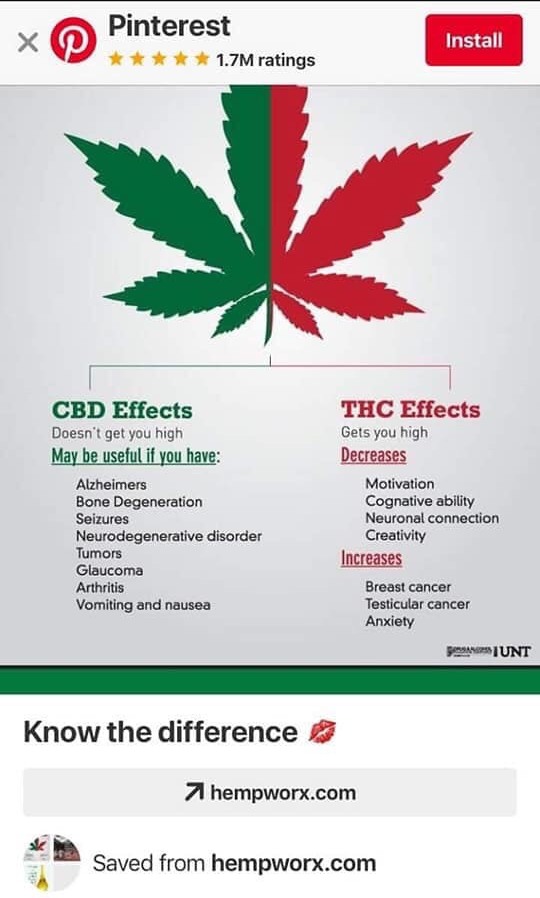
Here’s another from a company called Vaping360
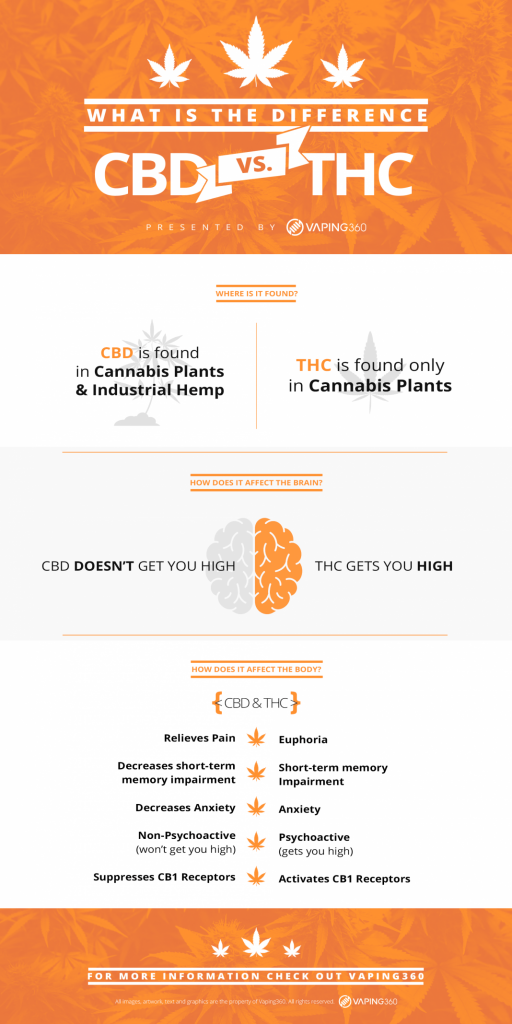
What? You didn’t know that THC is not found AT ALL in “industrial” hemp? It was news to us as well. As was the implication here that CBD is NOT found in “cannabis plants”. The rest of their misleading chart is just as bad and not worth breaking down.
We might have laughed if you had told us five years ago that some of the most outspoken critics of legal cannabis would be those in favor of legal hemp, but nobody is laughing now.
So, the misinformation surrounding a product that is meant to be a supplement for better health is certainly a concern. Sometimes that misinformation is right up front as we saw above, a tool of their marketing department formed into flyers and memes to sell more boof CDB gear. Sometimes, though, it is used to bury information that is known to be detrimental to the sales pitch.
At Beard Bros. Pharms we fully appreciate the need for and the benefits of CBD. We also prefer to see it as part of a true full spectrum medicine but we realize that we are still a few steps away from seeing that sort of medicine being sold legally nationwide. Our biggest concern with the current hemp-derived CBD marketplace is the stunning lack of regulation that has been put in place before and since the sudden passage of the 2018 Farm Bill.
Now, take a screenshot because you will not see us asking for more regulations very often! While we do not agree with how the state of California has rushed to implement mandated lab testing on legal cannabis products, we still see the absolute need for such testing, and the same goes for other controversial programs such as track & trace. You have to have programs like these, in some shape or form, in order to provide a level playing field for cultivators, manufacturers, and retailers and a safe marketplace for consumers.
Hemp derived CBD currently faces no such scrutiny.
KNOW YOUR SOURCE
If you do a google search for the phrase “CHAMPS trade show CBD”, the first four sites that pop up are all iterations of the CHAMPS page itself. The next one is a press release from a company called Profile Solutions, Inc. (aka Elite Hemp), hyping their upcoming presence at this most recent CHAMPS show in Vegas.
When you visit their site, you’ll find little info about their products but you will find yet another press release, this time from January of this year and this time touting their acquisition of $2,500,000 to secure an exclusive 10-year contract to grow their hemp in eSwatini.
Never heard of eSwatini? Neither had we. Turns out, it is the nation formerly known as Swaziland, in Africa where 63% of its residents live below the poverty line and 25% of the adult population suffers from HIV/AIDS.
Will we someday see cannabis companies sending out $1000 press releases bragging about multimillion THC grow ops in impoverished third world countries? We hope not.
But this example highlights our major concern with the current state of CBD – where is it coming from?
There are many examples of American farms producing literal tons of hemp biomass each harvest and we like to assume that most of them are growing it in a conscious and ethical manner. That number should grow with the passage of the Farm Bill and the new incentive for farmers to consider sowing their fields with hemp seeds.
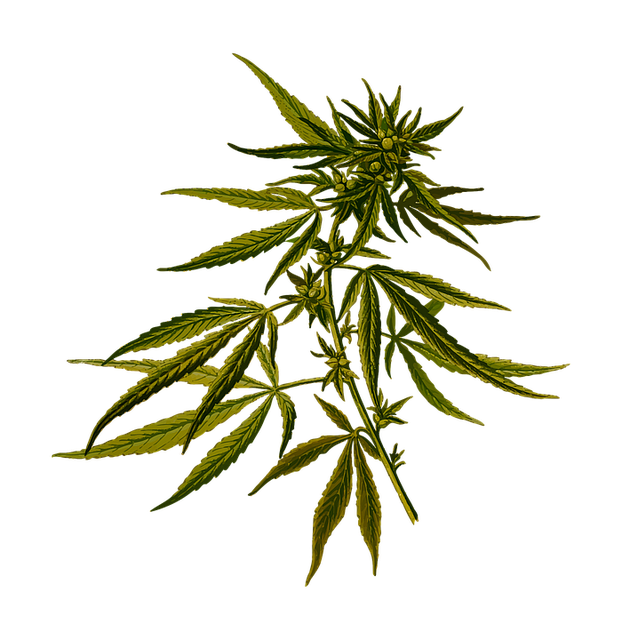
But hemp is a very unique plant known not only for CBD, or for its hundreds of uses as a textile, but also as an amazing soil remediator. Soil that is incrementally poisoned by years of traditional agriculture practices and the toxic chemicals and pesticides that are allowed to be sprayed on our food crops can be flushed and cleaned by replanting it with hemp. The hemp plants will suck those toxins and heavy metals from the soil, effectively rinsing it clean for future use. Those nasty chems don’t just vanish, however, they remain in the plant and can absolutely be unintentionally extracted out of it in the process of making these ultra-popular CBD-infused products.
This could be happening right here at home, whether the farmer knows it or not, since there is no current standard or mandate for 3rd party lab testing. It is almost certain that hemp-derived CBD from places like China or Eastern Europe would test hot if held to the standards we see for legal cannabis here in the U.S.
Even companies using alleged lab tests to market their products should be viewed with a skeptical eye. As we learned in the old days of cannabis legalization, if you are allowed as many “compliance” tests as you want, you’ll just bounce from lab to lab until you get the results you want. Since the labs have no state-sanctioned license at risk, they can employ the “pay-to-play” tactics that soiled the reputation of lab testing for so long with little or no risk of recourse.
We will be keeping a very close eye on the FDA hearings on this matter happening next month and we suggest that you do too. Both cannabis and hemp-derived CBD products have a viable place in any market as long as they are brought to that market in an ethical way.
Keep updated on all the latest news and updates in the Cannabis industry here at Beard Bros Pharms by signing for our Friday Sesh Newsletter here. Always Dank and Never Spam!



